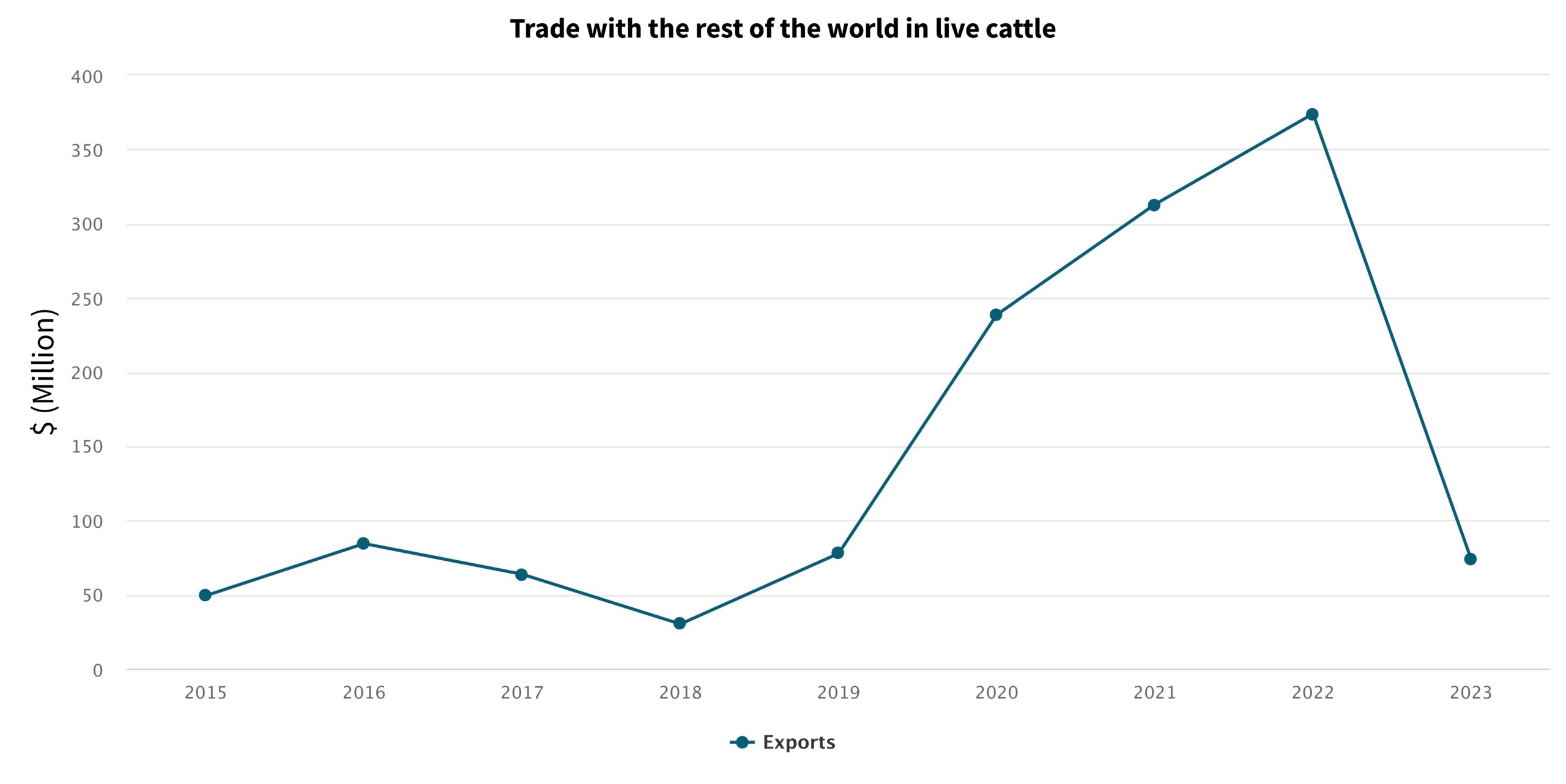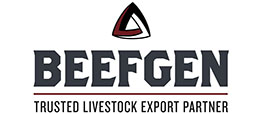Economic
and Community Benefit

How important is live animal exports to New Zealand’s economy?
The livestock export industry provides a range of economic benefits to New Zealand including revenue generation, employment opportunities, agricultural sector growth and innovation, and building strong trade relations with important export markets.
-
From June 2018 to June 2019, the value of New Zealand’s livestock (cattle, deer, goats and sheep) exports was approximately $54 million (the total trade in live animals was worth $239 million).
- Trade in animals and animal products was around $30.8 billion which accounts for approximately 66% of the value of New Zealand’s total primary products exported.
- In the past 10 years, around 5,000 farmers across New Zealand have supplied breeding cattle for export, with an average of over 40 animals per farm.
- In addition to the cost per animal, a shipment of around 3,000 animals can return roughly $1.5 million to New Zealand based service providers who work in the industry including domestic livestock transporters, veterinarians, feed supply companies, quarantine facilities and regional accommodation providers.
- Livestock for export usually attracts a premium, which can be 50-85% of an animal’s value above the domestic market.
- New Zealand’s rural areas and rural service centres see most of the economic benefits from the trade as this additional income circulates creating an economic multiplier effect.
Trade produced in the rest of the world in live cattle by Stats NZ Tatauranga Aotearoa

| 2017 | 2018 | 2019 | |
|---|---|---|---|
| cattle | $2,248 | $2,125 | $2,018 |
| sheep | $750 | $2,298 | $1,411 |
| goats | $439 | $1,191 | $1,545 |
Affiliated Exporters
Australasian Global Exports
www.globalexp.com.auAustraliasian Global Exports was formed in 2005 and has grown substantially since then. They use both sea and air freight to export livestock around the world from Australia, New Zealand, Uruguay, Europe and the USA to various markets in the Middle East, Russia, China and other Asian countries. They have a robust supply chain that is supported by strong relationships with their producer partners. They have various livestock facilities and farms throughout Australia as well as an investment on the West Coast of America where Alfalfa is purchased from growers and prepared for the export process to China.

AUSTREX
www.austrex.comAUSTREX is an Australian-owned business with a significant producer network in New Zealand and other key nations, which have been operating for nearly 50 years. Their vision is to grow livestock communities, sustainably for the future and they prioritise animal welfare. They pride themselves on generating significant local income and employment opportunities in rural areas, while also giving regional agribusinesses entry to broader international markets.

BeefGen
www.beefgen.comFounded in New Zealand in 2018, BEEFGEN is an internationally known and respected livestock exporter. With top-tier animal welfare practices, BEEFGEN has successfully delivered tens of thousands of breeding animals worldwide. With a team whose knowledge spans over decades, BEEFGEN is able to assist customers with all aspects of the supply chain, from procurement to in country services. Whether by air or sea freight, from New Zealand or Australia, BEEFGEN ensures that desired breeding animals are delivered with the highest welfare considerations, on time and in optimal condition.

Yarra Corp
www.yarracorp.comBeefGen has a purpose-built facility in Gisborne, New Zealand with interests in quality livestock exporting, genetics exporting from their own bulls and producing premium Angus beef for the Chinese market. They work hard to source livestock from New Zealand farms that meet the requirements for their Chinese buyers. They manage the entire process including stock management and logistics such as sourcing the ships and people to complete the voyage, maintaining the highest animal welfare standards and biosecurity requirements are at the centre of their business.

Southern Australian International Livestock Services
www.sailsxp.com.auSouthern Australian International Livestock Services (SAILS) is a 100% Australian owned business with registered companies in Australia and New Zealand. SAILS export livestock by sea and air from a range of countries including New Zealand, Australia and Uruguay. They have been exporting since 2008 and offer a post-arrival service with a dedicated team of husbandry specialists to provide high-quality support to their customers. They have strict selection protocols and promote high-quality genetics to satisfy their customers in China, Russia and CIS countries.






